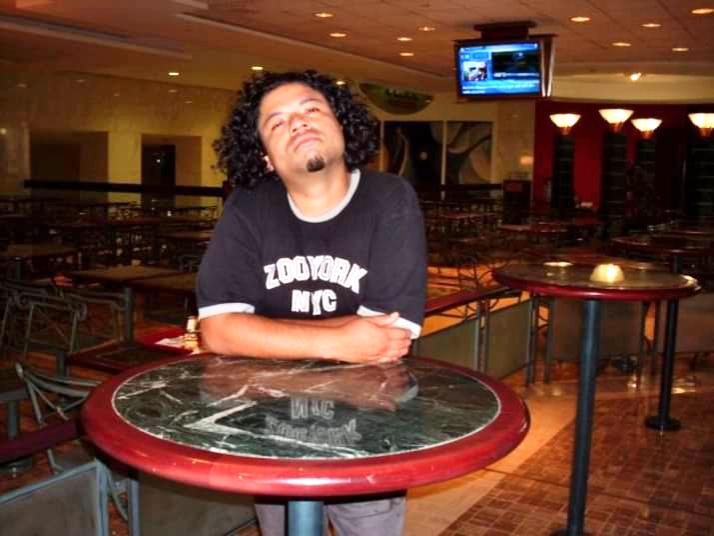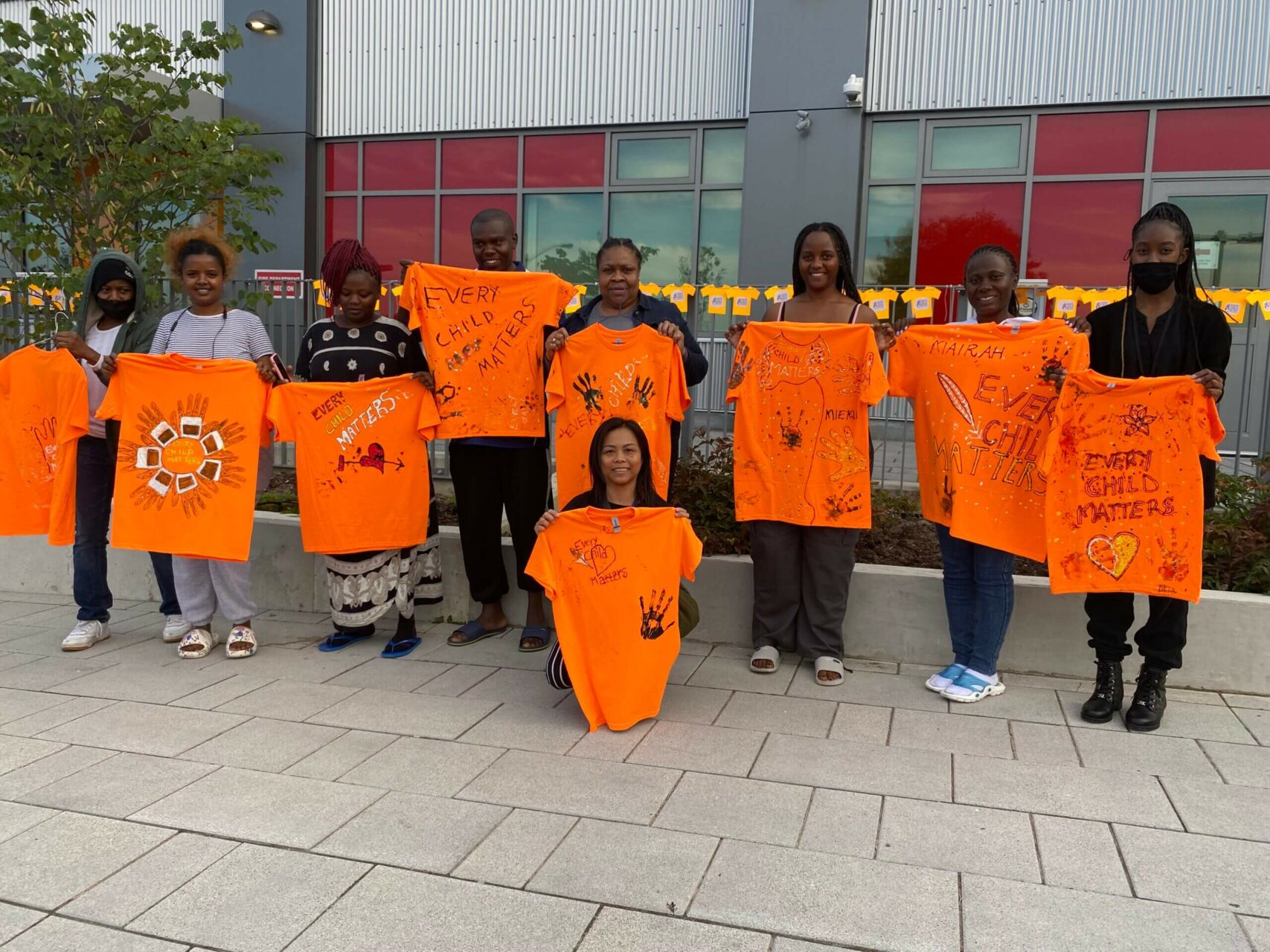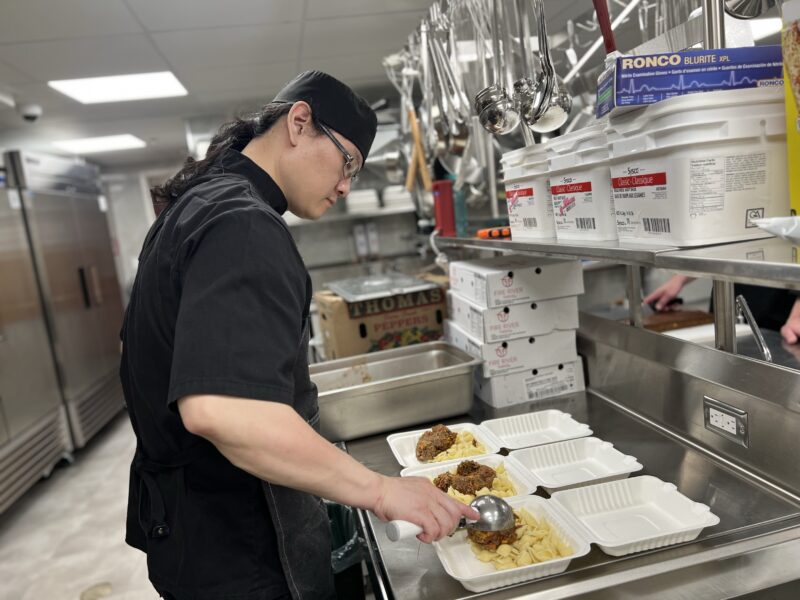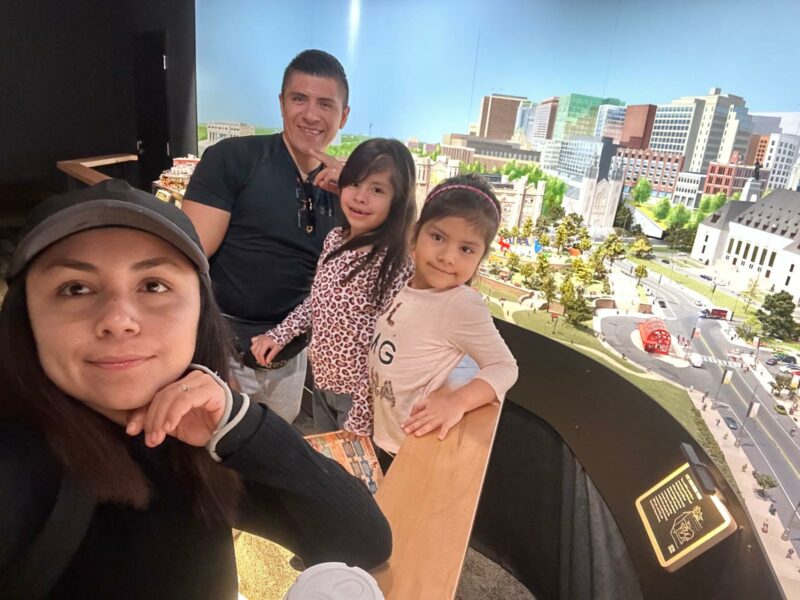INDIGENOUS PEOPLES ARE DISPROPORTIONATELY AFFECTED BY HOMELESSNESS.
FOR ALEX, A HOMES FIRST RESIDENT, THE NATIONAL DAY OF TRUTH AND RECONCILIATION IS A DAY TO REFLECT ON INTERGENERATIONAL TRAUMA AND THE MEANING OF HOME.

“I was always close to my mom,” says Alex, who hails from New Brunswick and whose mother belongs to Pine Creek First Nation in Manitoba. “(But) there was no connection to any of my culture at all. I just knew I was Native.”
When he was 17, Alex, who is also half black, hopped on a bus to Toronto to find his mother. “She was really messed up,” he says. “I hadn’t seen her probably for 10 years and I heard she was here.” The bus dropped him at a stop with others who had nowhere else to go. Thankfully, Alex ended up at Na-Me-Res, a temporary residence for homeless Indigenous men.
This is when Alex started learning about his Indigenous roots and the legacy of residential schools. In Toronto, he reunited with his mother and found a place to live. When he typed his last name into Facebook, which is fairly unique, he was surprised to find several people with the same name in Manitoba – most likely all family members. “There’s not many of us in Canada – I think I’m the only one with that last name in Toronto, so it’s pretty cool.” he says.
But along the way he also learned about the root causes of his mother’s struggles – and his own.
Trauma response to colonization
A history of oppression, racism, assimilation, abuse and the 60s scoop are just some of the reasons Indigenous peoples make up 20-50 per cent of the total homeless population in major urban areas. These traumas have led to familial dysfunction, substance use, addictions and health issues, among other issues. Alex knowns this all too well.
“I have addiction issues that go up and down or come and go. I have good times or bad times. And there was just a really bad time and I got really screwed up.”
This time the consequences were particularly devastating. Alex and his partner of 17 years were evicted from their home and ended up living in a park. They have now been homeless for two years and are staying together at Homes First’s Delta Hotel Program.
“I like the fact that you have you own room.,” says Alex. “I appreciate Homes First for doing this.”

Everyone needs a home where they can heal.
In 2022 the liberals promised to develop an urban, rural and northern Indigenous housing strategy, pleding $300-million over five years.
Alex is hopeful he and his partner will soon find a permanent place to call home. They even adopted a dog “because we don’t want to live like this forever.” They’re anxious to be re-housed so they can get back to doing the things they love: cooking dinner and enjoying life together.
To stay connected to his culture, Alex has a group of Indigenous friends he visits with regularly. “We look out for each other,” he says. He’s still learning about Indigenous traditions and where he comes from, and is hopeful that one day, he’ll be able to meet some of his relatives. While he remains optimistic about the future, Alex says there is still a lot more education that needs to happen. This Truth and Reconciliation Day he encourages everyone to continue learning about Indigenous history and ways you can address racism and discrimination in Toronto and Canada.
“People need to realize what happened (to Indigenous peoples). There’s still racist stereotypes and people treat you (badly). Even just a little bit of that hurts. We’re good people – we have stuff to give and offer.”
____________________________
Today we are honouring all of our Indigenous residents and their families.
Homes First partners with Toronto Council Fire Native Cultural Centre to provide Indigenous education and empower Indigenous clients at the Delta Hotel Program.
Click here to learn more and donate to Toronto Council Fire.


